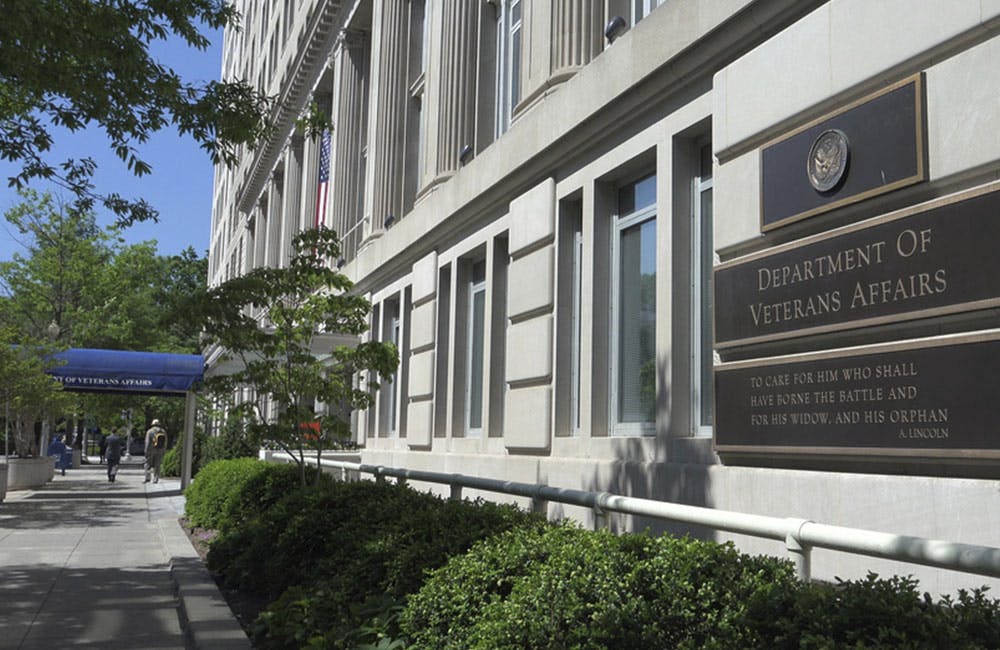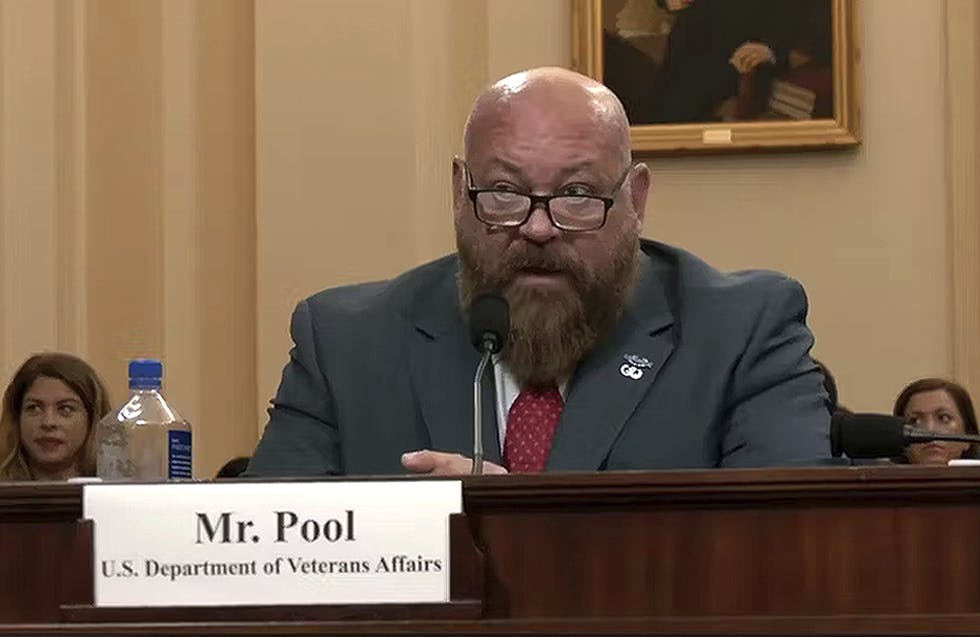AI Caucus Co-Chairs: AI is an ‘American issue’
The Congressional AI Caucus stands out as an example of bipartisanship and leveraging interest to promote knowledge.

Artificial intelligence is an exciting emerging technology that can automate mundane tasks, allowing employees to focus on higher-complexity work and improve the quality of services that government agencies provide. However, because it is an emerging technology, agencies are taking it in different directions. Some are unsure how to best allocate taxpayer dollars, and others are unsure how to best educate and inform their stakeholders about the benefits, risks, opportunities and challenges of AI.
To unify AI efforts and clear some of these hurdles, Rep. Pete Olson formed the House AI Caucus with now-former Representative John Delaney during the 115th U.S. Congress. Olson spoke with Rep. Jerry McNerney, the new co-chair of the caucus who represents California’s 9th district, at the GovernmentCIO Media & Research AI & RPA in Government CXO Tech Forum to discuss the bipartisan effort in the house to keep people informed about AI and its prospects.
“You’ll hear us say a word over and over — you don’t hear it enough in D.C.,” said Olson, who represents the 22nd Congressional District of Texas. “Bipartisan. This issue is not Democrat, Republican, liberal, conservative. It is an American issue.”
The level of interest and support for the caucus is already clear, added McNerney. Caucus meetings are typically lightly attended, he said, but AI caucus meetings average around 15 members of Congress, and the room is often “packed shoulder to shoulder” with staffers, even on “flyaway days,” when representatives and their staff usually travel to their home districts instead of staying on the Hill.
“People want to know what this is,” he said. “People want to know what the future looks like … To educate Members of Congress about what this means will be very vital to the future of this program.”
One reason AI caucus meetings are so well attended is due to concerns that the rise of AI will eliminate a large percentage of American jobs. Olson reassured the audience that this is not the first time America learned to adapt business to changing technology, citing the number of computer hardware companies that now sell software and IT services.
“We have to control that fear,” said Olson. “Smart people … bring up AI and they say Armageddon — the destruction of society! Whoa, whoa. That’s not what this is about. These machines will never become humans…we control what they’ll do. We have to work on our biases – we have natural human biases – and keep those out of the programs.”
McNerney added that AI will replace some aspects of jobs, but the parts that cannot be replaced will not only still be important, but also can lead to new opportunities.
Another priority for the caucus is getting federal agencies to share data and cooperate on AI acceleration.
“The United States government has the wherewithal and resources to kickstart a program like AI,” McNerney said. “If we get the agencies of the government working in a way that promotes this and helps create opportunity, then we’ll see [AI] take off in a positive way.”
Olson noted that federal agencies are currently pursuing AI development independently of one another and hopes to increase communication between those programs, rather than have them “double up or triple up efforts.” He has introduced a bill that would break down these barriers and create means for agencies to collaborate on AI.
Following the theme of bipartisanship, McNerney has proposed an AI in government bill to increase AI funding and seek expertise from the private sector; the companion bill has passed the Senate, and the House Oversight Committee is due to mark the bill up soon. The bill would create AI centers of excellence and create new hiring paths in the field.
Both co-chairs said the AI caucus is here to stay.
“AI is way beyond elections and politics,” Olson said. “This is truly bipartisan. This will survive the elections coming up next November…It’s very important, and people know that.”
“There is going to be a continuing growth in this, and it could be transformative,” McNerney remarked. “We could see the health care industry transformed by artificial intelligence, we could see our cities transformed, we could see transportation and our electrical infrastructure [transformed]. All these things have a tremendous opportunity with the synergy that we’re starting to see happen.”
This is a carousel with manually rotating slides. Use Next and Previous buttons to navigate or jump to a slide with the slide dots
-

NSF Wants Industry Driving Quantum Innovation
The agency is pushing for partnerships to enhance the research community as Congress weighs additional legislation.
3m read -

White House Science Chief: US-Driven AI Sets Global Standards
Michael Kratsios outlined how American AI technology on the global stage will help standardize the tech and counter China’s influence.
5m read -

Modernizing Critical Infrastructure in the Face of Global Threats
Officials are expanding the latest strategies in boosting defense infrastructure, including securing satellite communications, upgrading enterprise-wide technology, optimizing data management.
20m watch -

Trump AI Orders Call for Speed in Building Infrastructure
The directives call for expanding AI infrastructure, streamlining federal permitting and promoting AI exports.
4m read -

DOD Accelerates Software Modernization with Agile DevSecOps Push
The Pentagon's software implementation plan tackles cultural hurdles and integrates security early to deliver critical capabilities faster.
6m read -

White House Unveils AI Action Plan to Secure Global Dominance
The strategy outlines steps to accelerate private sector innovation, build critical infrastructure and advance U.S. leadership in AI policy and security.
3m read -

VA's Platform One Powers Rapid Innovation to Bolster Digital Services
VA's Platform One accelerates software development timelines from weeks to hours, ultimately enhancing digital services for veterans.
5m read -

Federal Leaders Receive Federal IT Efficiency Flywheel Awards from GovCIO Media & Research
Five federal IT leaders received Flywheel Awards for driving innovation and modernizing technology at the Federal IT Efficiency Summit.
5m read -

Doing More with Less is Muscle Memory for IRS, Former Deputy CIO Says
Darnita Trower discusses her experience, the legacy she’s left behind and how she pushed the IRS to modernize itself,
20m watch -

Opinion: Original Intelligence Is the Missing Piece for AI Transformation
Limitations of AI agents and development drive growing needs for workforce development and "original intelligence."
3m read -

VA CIO Targets Modern IT and Smarter Workforce Alignment
Agency leaders told lawmakers they are focused on trimming legacy systems and restructuring its workforce to streamline operations.
3m read -

Pentagon's $200M AI Contracts Signal Broader Effort to Transform Talent
The Army is leveraging Silicon Valley, reservist programs and new hiring strategies to integrate critical digital skills in its ranks.
5m read















